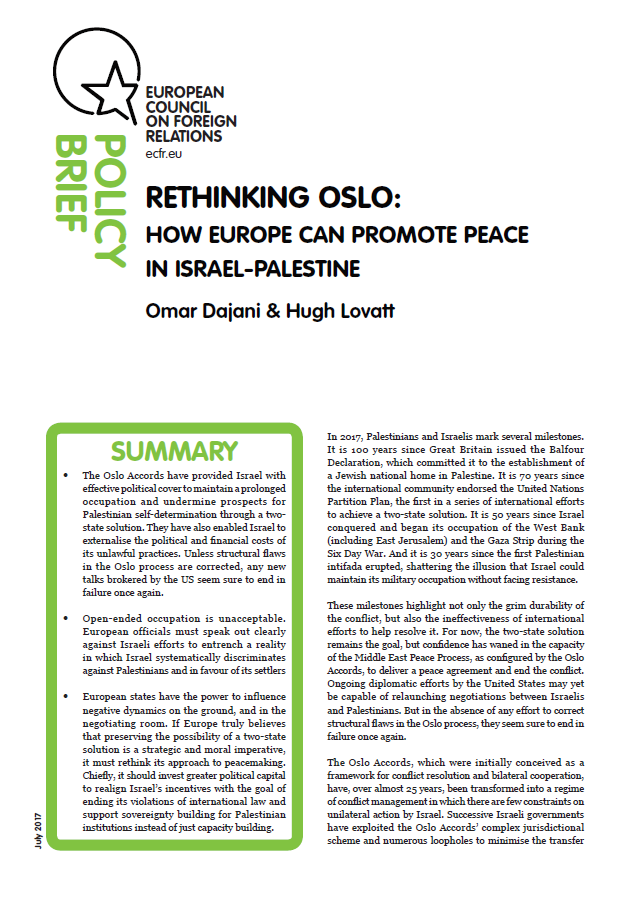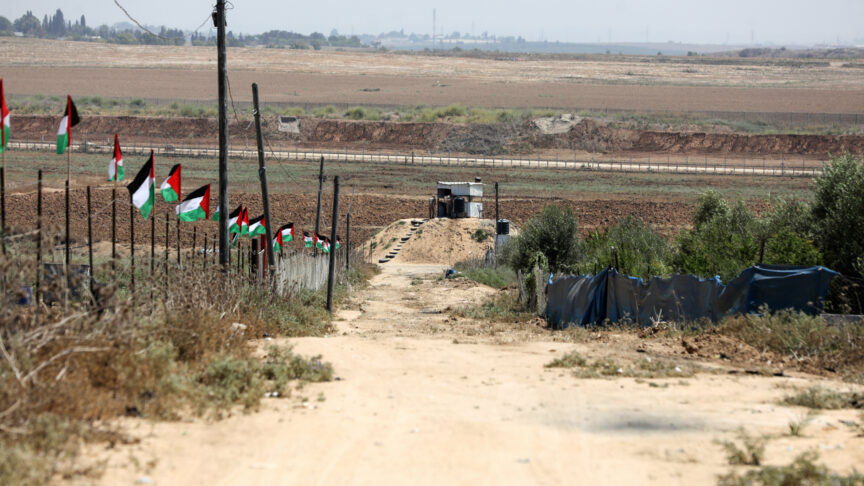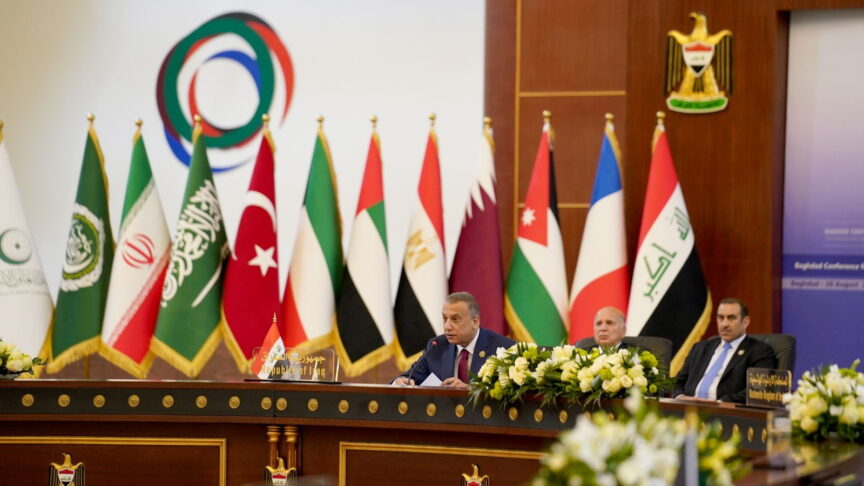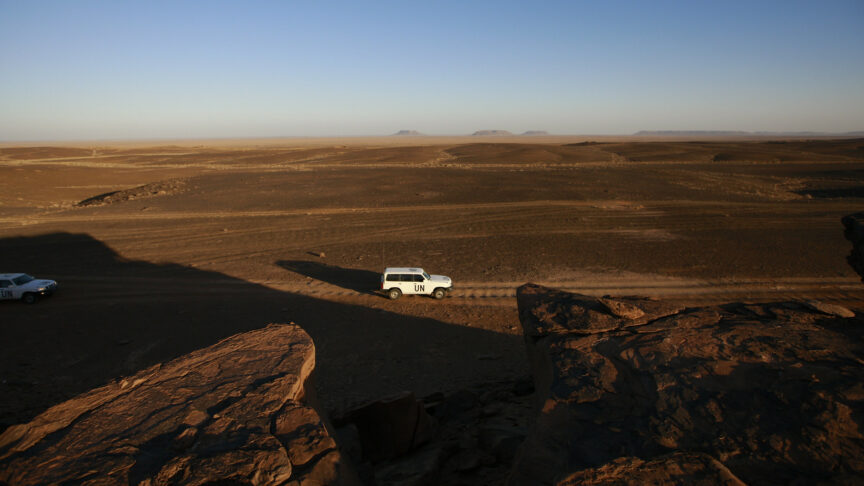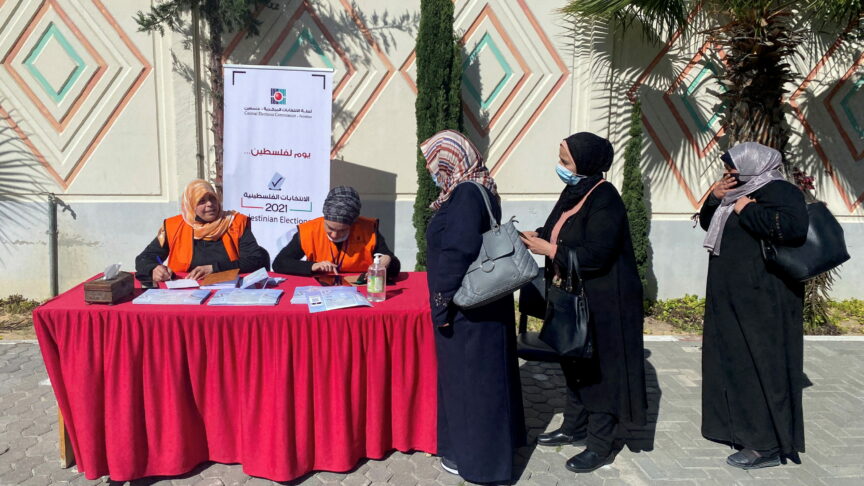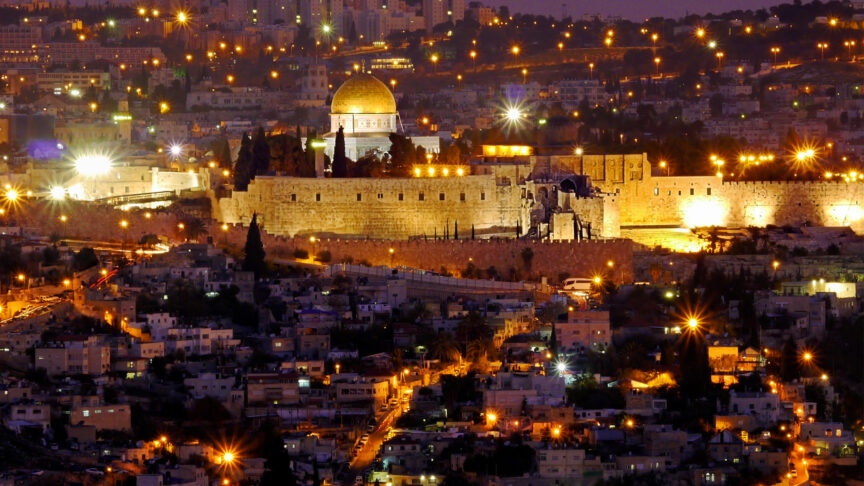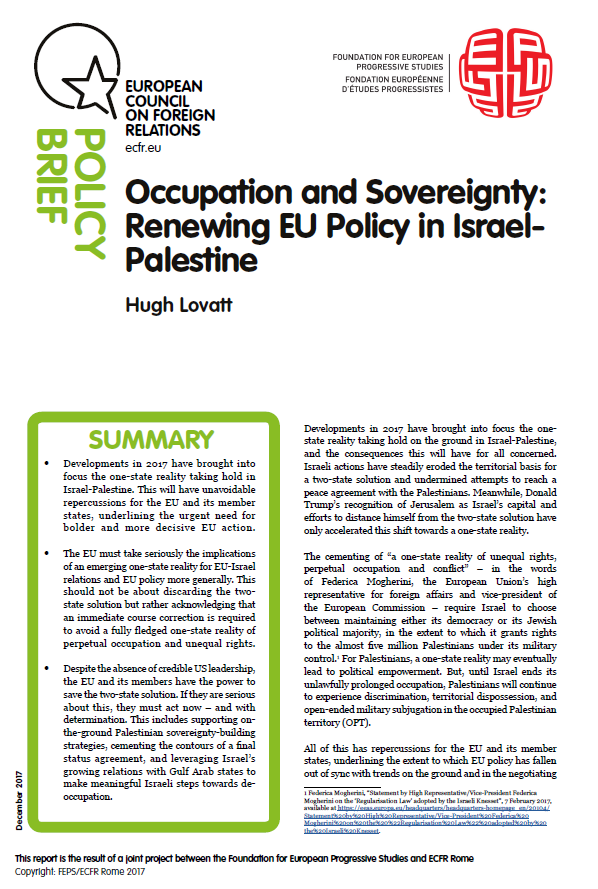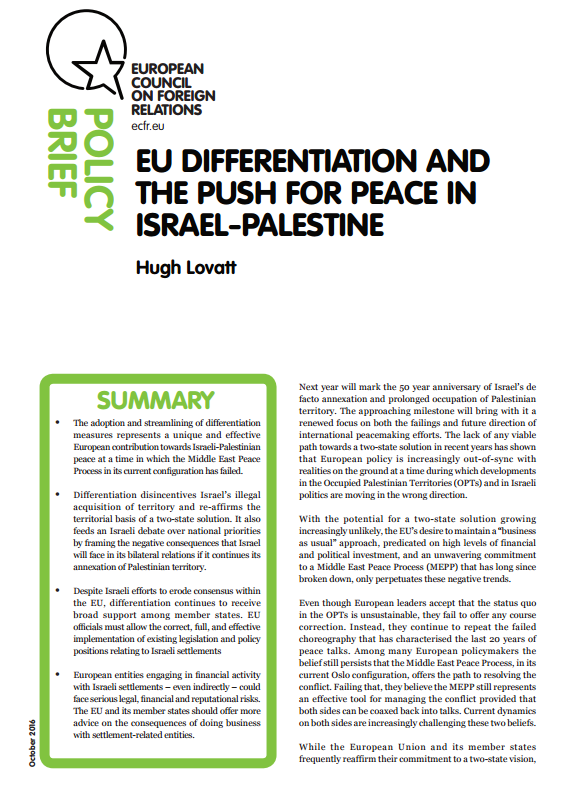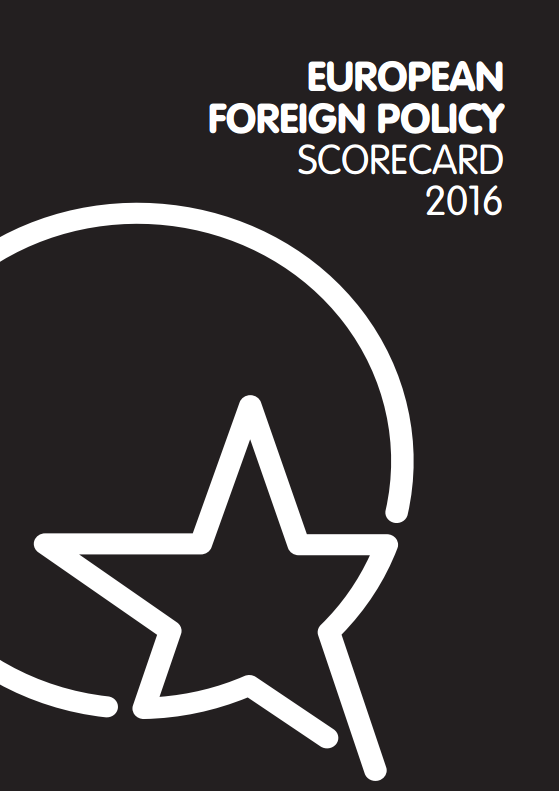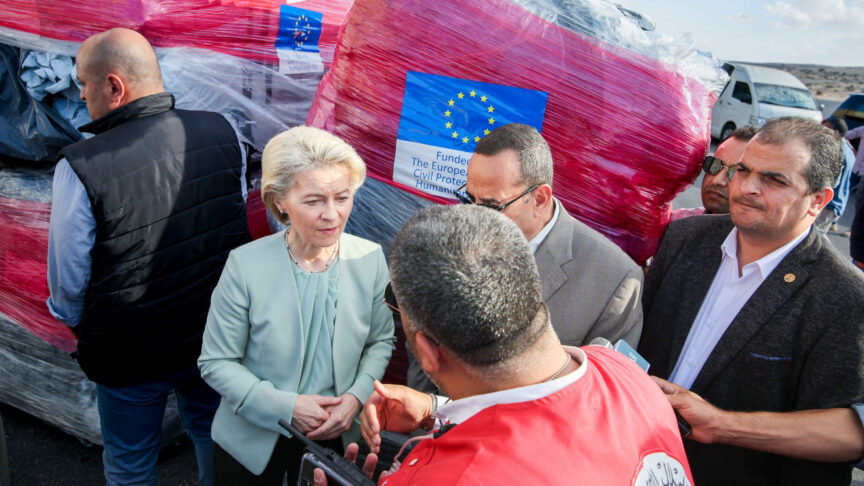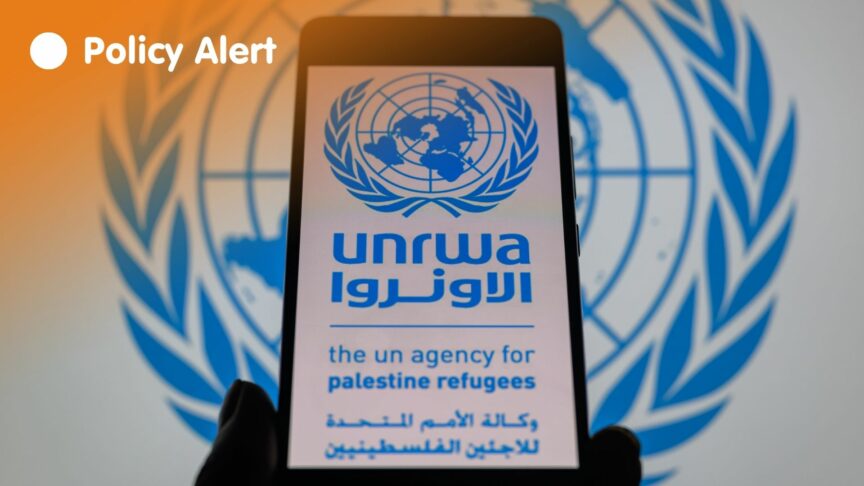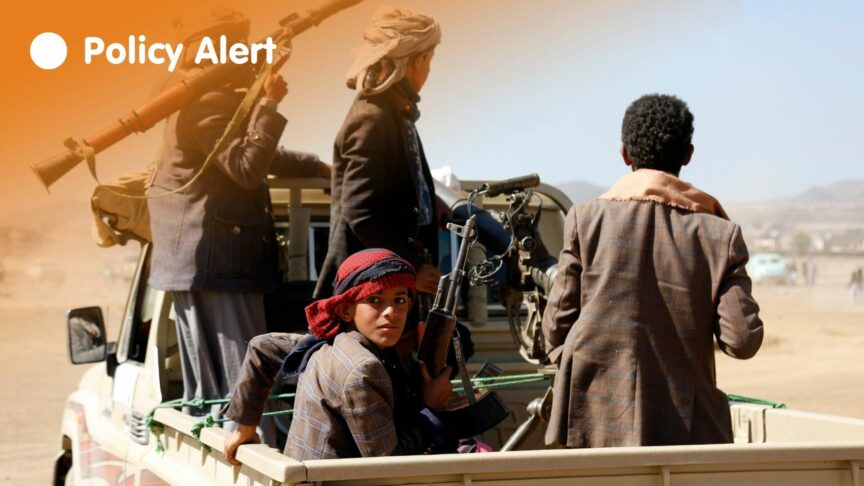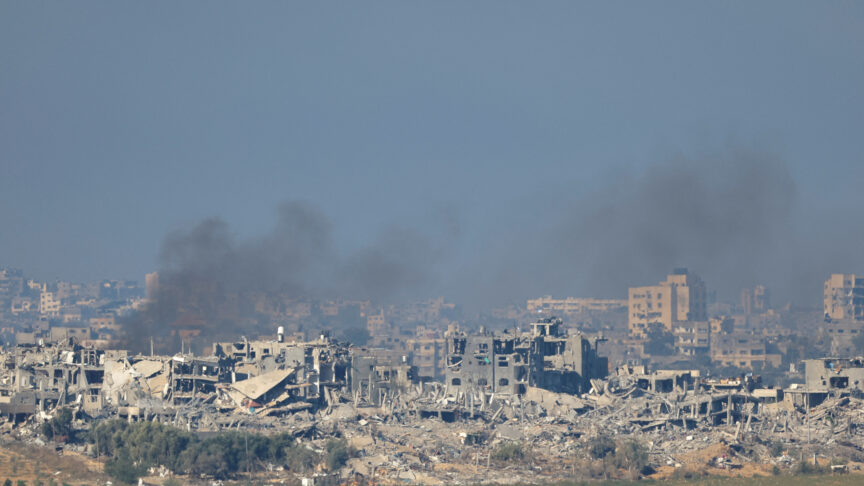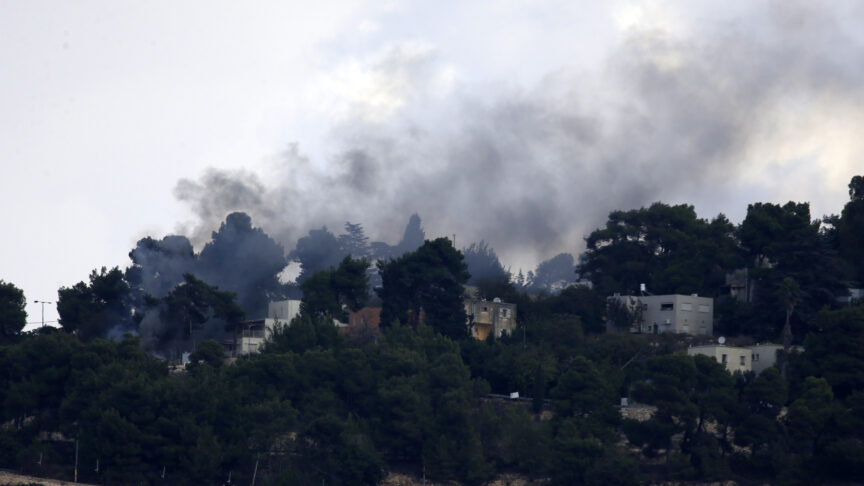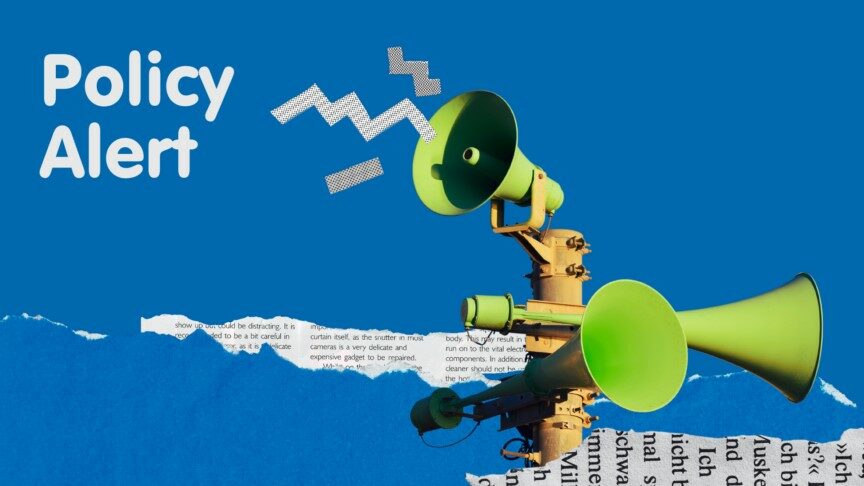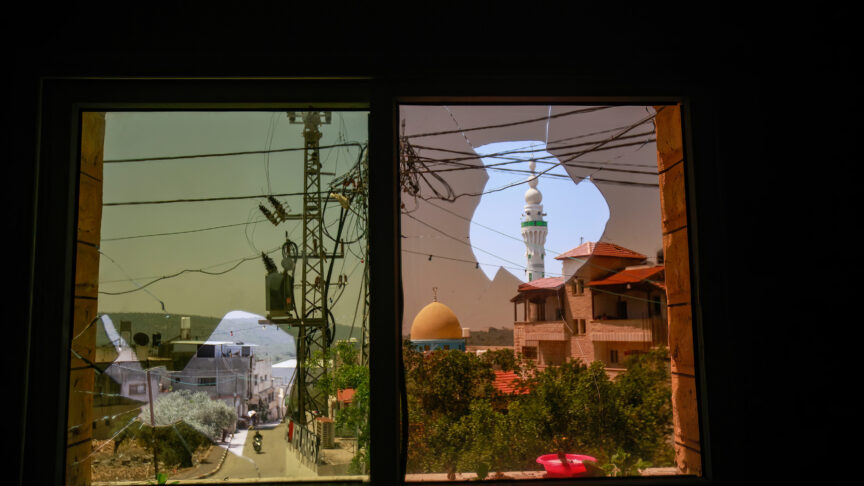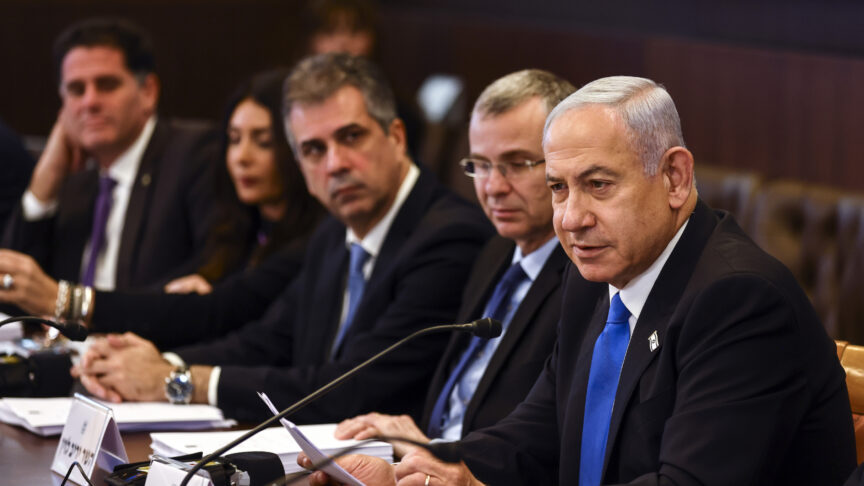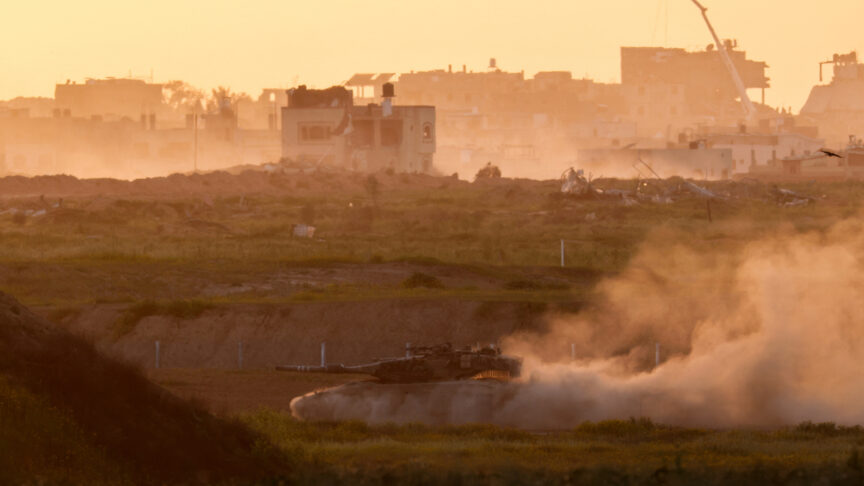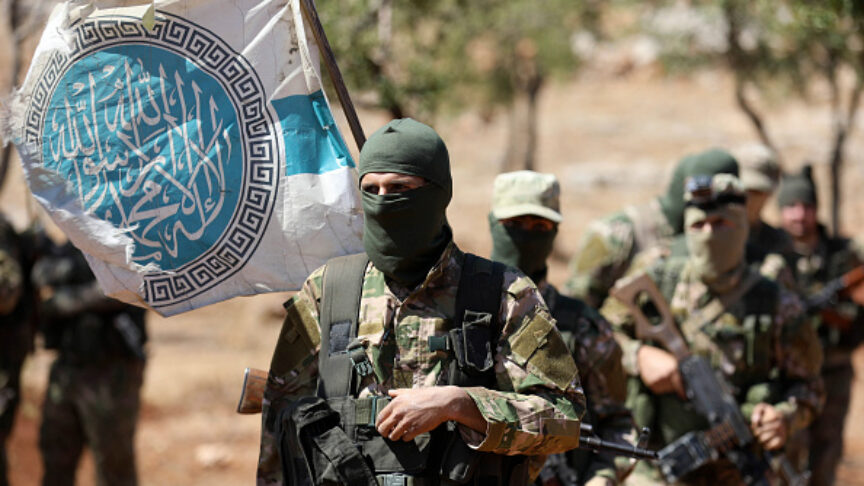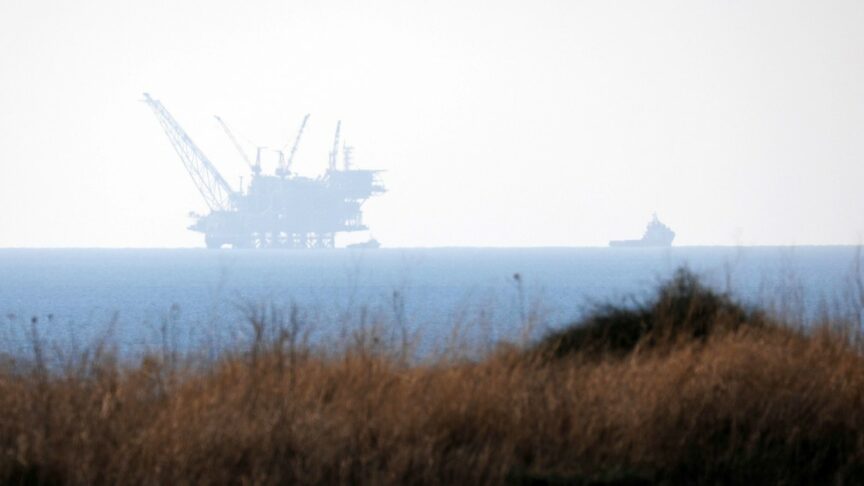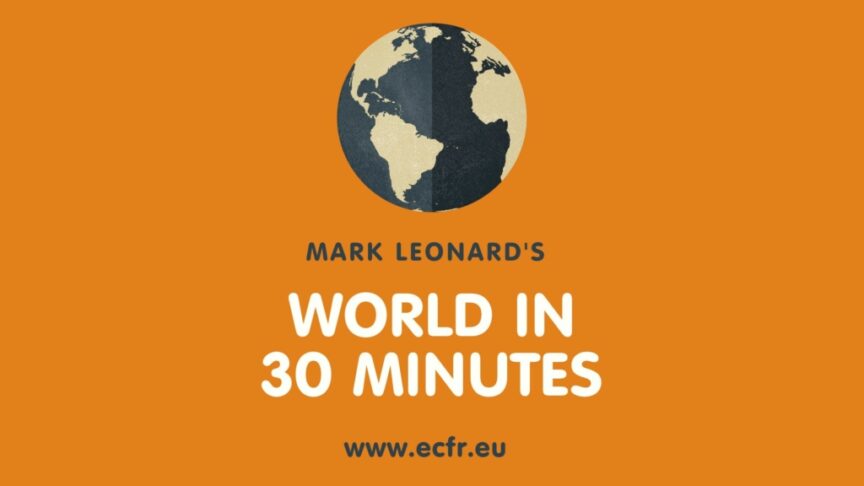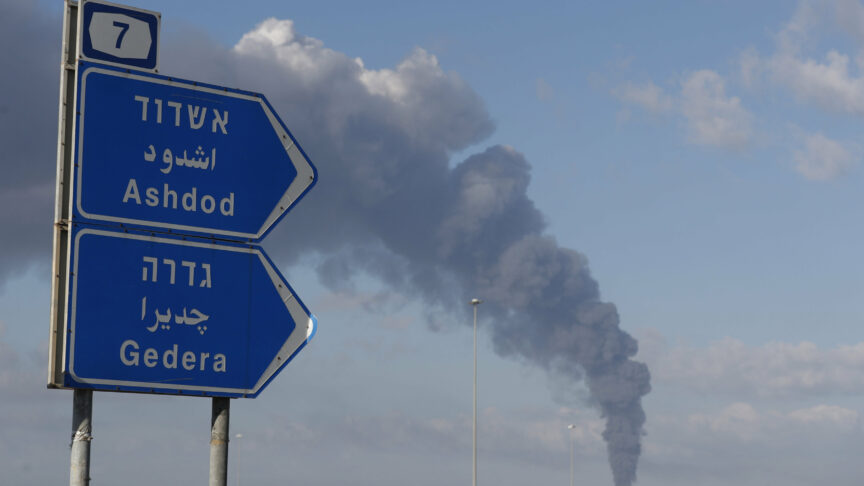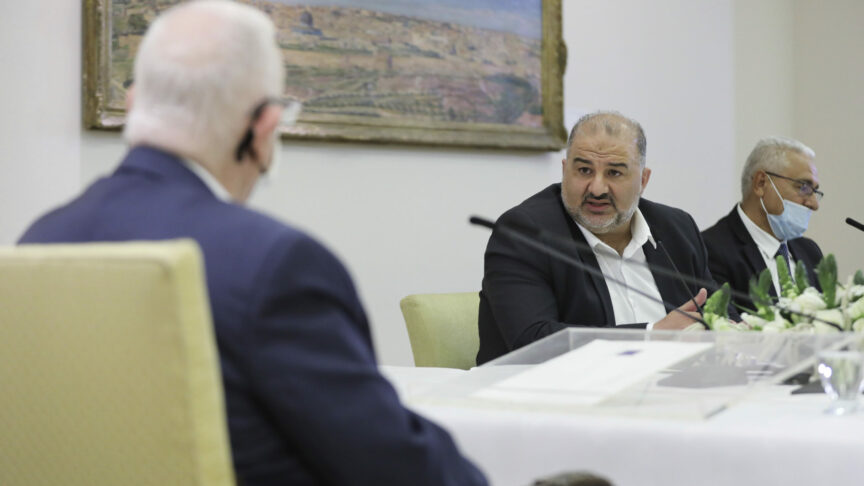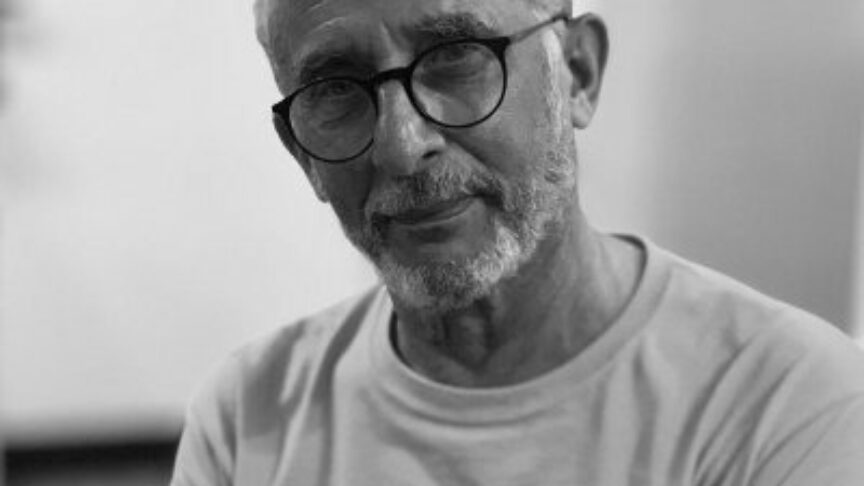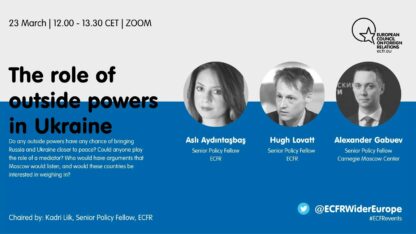Hugh Lovatt is a senior policy fellow with the Middle East and North Africa Programme at the European Council on Foreign Relations. Lovatt has focussed extensively on regional geopolitics and advised European policymakers on the conflicts in Israel-Palestine and Western Sahara. He is regularly interviewed and quoted in international media, including by the New York Times, BBC, Christian Science Monitor, Financial Times, AFP, Le Monde, France24, and Al Jazeera.
Lovatt co-led a 2016 track-II initiative to draft an updated set of final status parameters to resolve the Israeli-Palestinian conflict, and has worked to advance the concept of EU Differentiation, which was enshrined in UN Security Council Resolution 2334. Lovatt also co-developed an innovative online project mapping Palestinian politics. His publications include Rethinking Oslo: How Europe can promote peace in Israel-Palestine (July 2017), Free to choose: A new plan for peace in Western Sahara (May 2021), and Principled pragmatism: Europe’s place in a multipolar Middle East (April 2022).
Lovatt previously worked as a researcher for International Crisis Group and as a Schuman Fellow in the European Parliament focusing on Middle-East policy. He also worked for Aga Khan University’s Institute for the Study of Muslim Civilisations as an Arabic translator.
Lovatt studied Arabic at the Institute for Arab and Islamic Studies at Exeter University as well as at the Institut Français du Proche-Orient (IFPO) in Damascus. He then went on to earn an MA in Near and Middle Eastern Studies at the London School of Oriental and African Studies (SOAS), where he majored in Anthropology. Lovatt is Chairman of the Brussels-based European Middle East Project (EuMEP).


